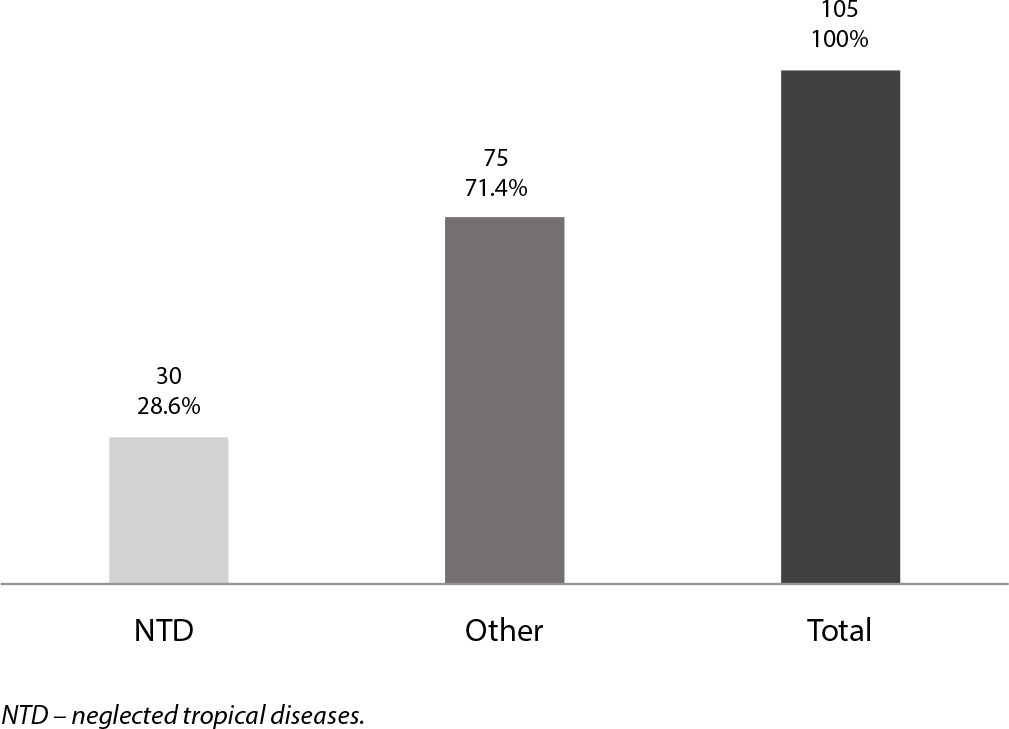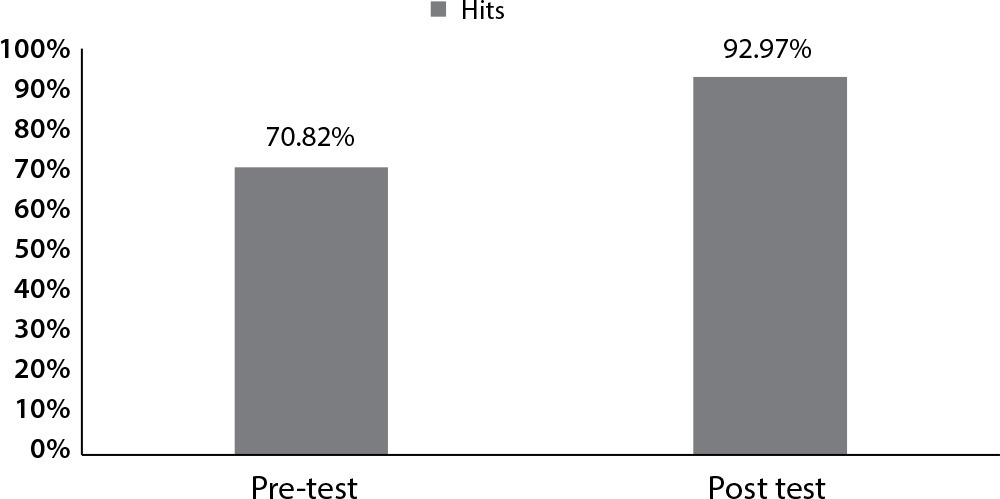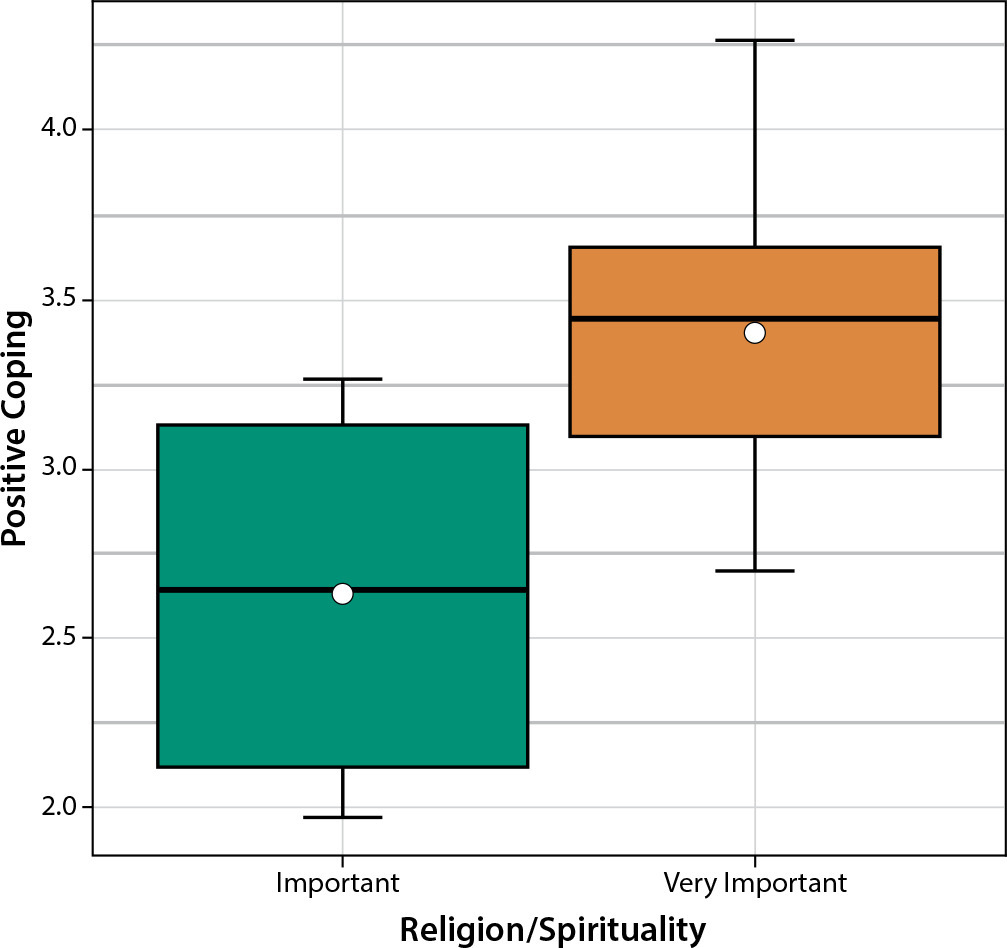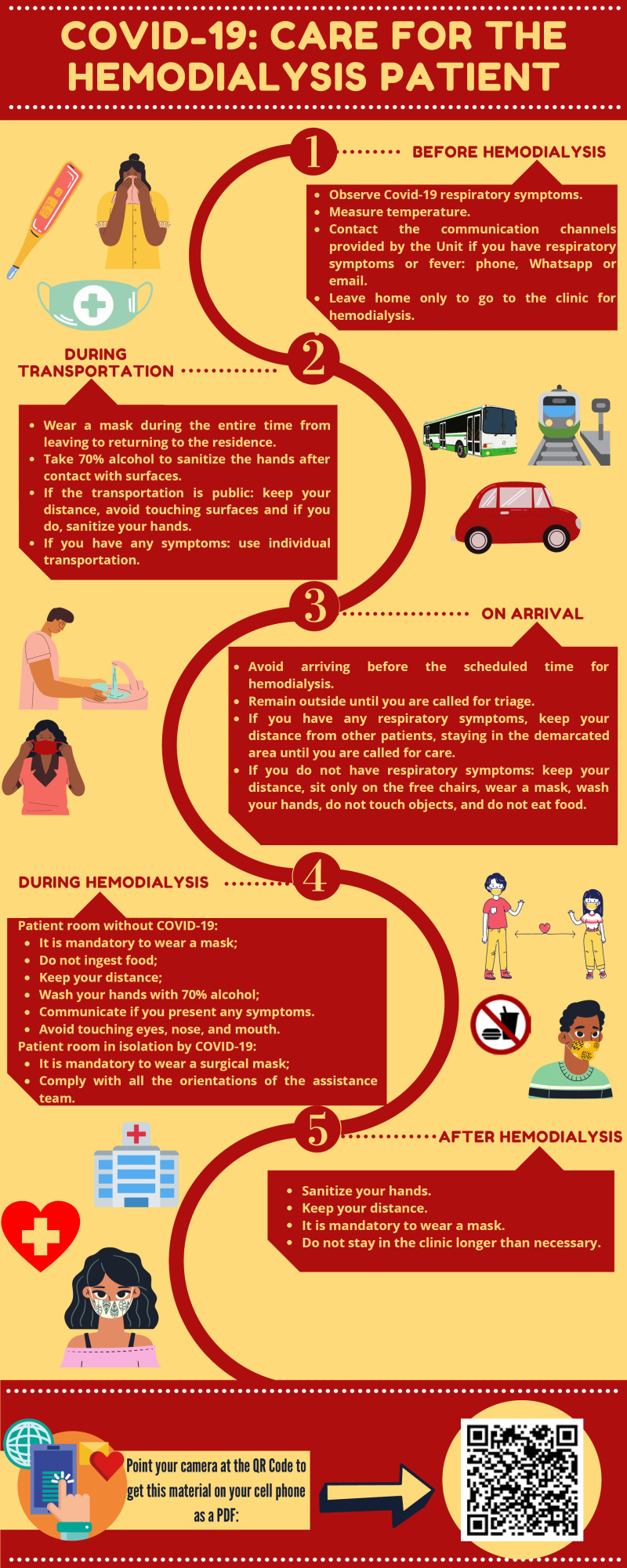-
ORIGINAL ARTICLE11-11-2022
Analysis of midwives’ situation and the need to measure their workloads
Revista Brasileira de Enfermagem. 2022;75:e20210920
Abstract
ORIGINAL ARTICLEAnalysis of midwives’ situation and the need to measure their workloads
Revista Brasileira de Enfermagem. 2022;75:e20210920
DOI 10.1590/0034-7167-2021-0920
Views0See moreABSTRACT
Objective:
to analyze midwives’ employment situation of midwives and detect their workload measurement needs.
Methods:
a mixed methodology (quantitative and qualitative), observational, descriptive and cross-sectional study. Two phases were carried out. The first methodological phase consisted of conducting semi-structured individual interviews. The second methodological phase analyzed the Nursing Intervention Classification (NIC) interventions that midwives perform in the labor room during daily practice.
Results:
90.3% of midwives have work overload, since for 80.6% the midwife-pregnant mother ratio is not well established, since the mean execution time of a Nursing Intervention Classification (NIC) intervention is 20 minutes. For this reason, 100% of the sample considers the development of workload measurement tools to be highly useful.
Conclusions:
the need to generate an instrument that considers the diversity of Nursing Intervention Classification (NIC) interventions that develop within the labor room is ratified.
-
ORIGINAL ARTICLE11-10-2022
Nursing care for the Amazon population: knowledge production and human resource development
Revista Brasileira de Enfermagem. 2022;75:e20201084
Abstract
ORIGINAL ARTICLENursing care for the Amazon population: knowledge production and human resource development
Revista Brasileira de Enfermagem. 2022;75:e20201084
DOI 10.1590/0034-7167-2020-1084
Views0See moreABSTRACT
Objectives:
to analyze knowledge production adherence from a master’s course in nursing in the Amazon to care and health demands in the region, with an emphasis on neglected tropical diseases and traditional populations in the Amazon.
Methods:
a descriptive study, with a quantitative approach and documentary basis, analyzing dissertations defended in a Graduate Program in Nursing at the Universidade do Estado do Pará in association with the Universidade Federal do Amazonas, from 2012-2019. A descriptive statistical analysis was performed.
Results:
of the 105 dissertations analyzed, 30 (28.6%) were related to neglected tropical diseases. Of these, 11 (10.5%) dealt with Chagas disease, leishmaniasis, tuberculosis, malaria, and leprosy. Traditional populations in the Amazon participated in only 11 (10.5%) studies.
Conclusions:
knowledge production in a master’s course has adherence to care and health demands in the region; however, it needs to enhance its production to strengthen its identity.

-
ORIGINAL ARTICLE11-10-2022
Content validation to support the monitoring of disclosure of HIV diagnosis in childhood
Revista Brasileira de Enfermagem. 2022;75:e20210027
Abstract
ORIGINAL ARTICLEContent validation to support the monitoring of disclosure of HIV diagnosis in childhood
Revista Brasileira de Enfermagem. 2022;75:e20210027
DOI 10.1590/0034-7167-2021-0027
Views0See moreABSTRACT
Objectives:
to create and validate the content of a guide for monitoring the communication of the HIV diagnosis in childhood.
Methods:
methodological study, with a design guided by the Knowledge-to-Action (KTA) Framework, supported by a participatory approach. The guide’s content was structured according to the communication elements proposed by Lasswel from review studies.
Results:
the content was validated by 26 experts from nursing, medicine, psychology and pedagogy, using a Likert-type scale for relevance, clarity and precision. Data collection took place online and achieved a Content Validity Index of 0.94.
Conclusions:
the guide can contribute to the practice of professionals who care for children living with HIV, to support the family in communication and to the child’s right to know their diagnosis. For further research, it is recommended to create and validate the face of the technology in order to implement it.

-
ORIGINAL ARTICLE11-10-2022
Healthcare: action research with trans people living on the streets
Revista Brasileira de Enfermagem. 2022;75:e20210016
Abstract
ORIGINAL ARTICLEHealthcare: action research with trans people living on the streets
Revista Brasileira de Enfermagem. 2022;75:e20210016
DOI 10.1590/0034-7167-2021-0016
Views0See moreABSTRACT
Objectives:
to analyze the representations of healthcare provided to trans people living on the streets.
Methods:
ten women (three trans) and three cisgender men participated in this action research. Popular health education groups, focus groups, seminars and interviews were held, the data of which were organized in the software Nvivo®, submitted to content analysis and interpreted in the light of intersectionality theory.
Results:
healthcare was represented by the technical, relational, structural and citizenship dimensions. The relationship between gender and poverty determines the specific health needs of trans people living on the streets.
Final Considerations:
the need to expand conceptions and practices on healthcare to meet the specific health needs of trans people living on the streets was evidenced. Nursing, with competence and cultural sensitivity, can contribute to positive health outcomes and, consequently, break with the logic of exclusion, illness and poverty.
-
ORIGINAL ARTICLE11-10-2022
Effect of educational video on newborn care for the knowledge of pregnant and postpartum women and their families
Revista Brasileira de Enfermagem. 2022;75:e20201371
Abstract
ORIGINAL ARTICLEEffect of educational video on newborn care for the knowledge of pregnant and postpartum women and their families
Revista Brasileira de Enfermagem. 2022;75:e20201371
DOI 10.1590/0034-7167-2020-1371
Views0See moreABSTRACT
Objectives:
to evaluate the effect of educational video on newborn care to increase the knowledge of pregnant, postpartum, and family members.
Methods:
a quasi-experimental study, with pre-intervention and post-intervention evaluation with a single group. Fifty-eight pregnant, postpartum, and family members treated in basic health units and a hospital in Ceará, Brazil, participated. The study used the McNemar and binomial tests for the analysis.
Results:
after the intervention, there was an increase in the frequency of hits, from 70.82% to 92.97%. Most of the questions presented a significant increase of hits (p < 0.05) with an emphasis on sleeping position, drying of clothes, free demand for breastfeeding, and things to avoid (such as accessories in the sleeping place and talc in diaper change).
Conclusions:
the educational video was effective to participants in acquiring knowledge on the care of newborns and can assist in health education activities carried out by nurses.

-
ORIGINAL ARTICLE11-10-2022
Home care for children with gastrostomy
Revista Brasileira de Enfermagem. 2022;75:e20200699
Abstract
ORIGINAL ARTICLEHome care for children with gastrostomy
Revista Brasileira de Enfermagem. 2022;75:e20200699
DOI 10.1590/0034-7167-2020-0699
Views0See moreABSTRACT
Objectives:
to describe home care practices performed by family members for maintaining the life of children with gastrostomy.
Methods:
qualitative research using the Sensitive Creative method, with the Criatividade e Sensibilidade Corpo Saber [Corpo Saber Creativity and Sensitivity] dynamics. The participation included ten family caregivers of children with gastrostomy. The outpatient clinic of a federal hospital in Rio de Janeiro was the setting. Lexical analysis was used through the IRaMuTeQ® software.
Results:
Theme 1, entitled “The care for maintaining life performed by family members of children with gastrostomy at home”, was analyzed, comprising three classes: “The gastrostomy tube home care routine”; “The care with the gastrostomy/stoma”; and “Food and medication home care routine of children with gastrostomy”.
Final Considerations:
family caregivers used strategies to maintain the device and acquired new knowledge in this field, and in nursing competence, regarding stoma care, food administration, medication, and syringes.

-
ORIGINAL ARTICLE11-10-2022
Religious/spiritual coping in informal caregivers of children with cleft lip and/or dysphagic palate
Revista Brasileira de Enfermagem. 2022;75:e20201300
Abstract
ORIGINAL ARTICLEReligious/spiritual coping in informal caregivers of children with cleft lip and/or dysphagic palate
Revista Brasileira de Enfermagem. 2022;75:e20201300
DOI 10.1590/0034-7167-2020-1300
Views0See moreABSTRACT
Objectives:
to identify the use of religious/spiritual coping in informal caregivers of children with cleft lip and/or palate, dysphagic, powered exclusively by probe.
Methods:
descriptive and cross-sectional study, including 30 informal caregivers. For data collection, a Sociodemographic Questionnaire and the Brief Religious/Spiritual Coping Scale were used. For statistical analysis, ANOVA, Student’s t and Spearman’s correlation tests were used, with a significance level of 5%.
Results:
the use of religious/spiritual coping was high among participants (mean=3.71), with a predominance of positive (mean=3.30) compared to negative (mean=1.88). It was evident that the greater the reported importance of religiosity/spirituality in the participants’ lives, the greater the positive coping (p=0.001).
Conclusions:
informal caregivers used positive religious/spiritual coping as a way of coping with care demands related to the child’s health condition. These findings point to the importance of including spirituality/religiosity as health indicators.

-
ERRATUM11-08-2022
ERRATUM
Revista Brasileira de Enfermagem. 2022;75(1):e2022n1e02
Abstract
ERRATUMERRATUM
Revista Brasileira de Enfermagem. 2022;75(1):e2022n1e02
DOI 10.1590/0034-7167.20227501e02
Views0Article “Hemodialysis in the context of COVID-19: care, nursing protagonism and quality”, with number of DOI: https://doi.org/10.1590/0034-7167-2020-1077, published in the journal Revista Brasileira de Enfermagem, 75(Suppl 1): e20201077, on the front page:Figures 4 and 5 are in reverse order.[…]See more
-
REVIEW09-18-2020
Allocation of resources for health care in COVID-19 pandemic times: integrative review
Revista Brasileira de Enfermagem. 2020;73:e20200244
Abstract
REVIEWAllocation of resources for health care in COVID-19 pandemic times: integrative review
Revista Brasileira de Enfermagem. 2020;73:e20200244
DOI 10.1590/0034-7167-2020-0244
Views0See moreABSTRACT
Objective:
To analyze information on resource allocation in the context of the COVID-19 pandemic, published in indexed scientific journals, from December 2019 to March 2020.
Methods:
This is an integrative literature review, which took place in March 2020. All databases were investigated and studies were found only in MEDLINE. After applying the established criteria, six articles were selected.
Results:
It was evident that the allocation of resources is carried out as the demands emerge. The fragility in presenting scientific-methodological evidence that can guide decision makers for assertive allocation of available resources is highlighted. The results showed that studies on this subject are incipient and need to be expanded.
Final considerations:
The need for health organizations and area authorities to be better prepared for the proper use of available resources, with allocation based on scientific evidence and maximization of resources is indicated.

-
ORIGINAL ARTICLE05-24-2021
Critical thinking in nursing training: evaluation in the area of competence Education in Health
Revista Brasileira de Enfermagem. 2021;74:e20200979
Abstract
ORIGINAL ARTICLECritical thinking in nursing training: evaluation in the area of competence Education in Health
Revista Brasileira de Enfermagem. 2021;74:e20200979
DOI 10.1590/0034-7167-2020-0979
Views0See moreABSTRACT
Objective:
To analyze the constitution of critical thinking in nursing training in the approach by competence and the integrated curriculum, considering the evaluation process by capturing its challenges, and proposing overcoming strategies.
Methods:
Qualitative. In the first phase of data collection, interviews were conducted with twenty-four professors, nine preceptors, and fifteen students to reconstruct the profile of competence, and in the second phase, a workshop to validate the profile identified challenges and proposals. The Collective Subject Discourse was used to analyze the interviews and the holistic competence reference in reconstructing the profile.
Results:
The critical thinking is built based on experiences in the world of work, and evaluation is the conductor of reflections towards emancipation.
Final considerations:
It signals the importance of professor training in the learning evaluation and working with the collective construction of subjects to overcome challenges that happen in the changes of training.
-
REFLECTION10-26-2020
Covid-19 pandemic and the motivations for demanding health service in indigenous villages
Revista Brasileira de Enfermagem. 2020;73:e20200312
Abstract
REFLECTIONCovid-19 pandemic and the motivations for demanding health service in indigenous villages
Revista Brasileira de Enfermagem. 2020;73:e20200312
DOI 10.1590/0034-7167-2020-0312
Views0See moreABSTRACT
Objective:
To discuss the fundamental aspects in the establishment of preventive measures to tackle covid-19 among indigenous people in view of the motivations for seeking health care in villages of the Terra Indígena Buriti, Mato Grosso do Sul, Brazil.
Methods:
Theoretical-reflective study based on assumptions of the National Health System and previous ethnographic research that enabled the identification of the motivations to seek health care in Buriti villages.
Results:
Indigenous people seek health centers for health care programs assistance, treatment of cases they cannot resolve and to chat. Such motivations were the basis for discussing the indigenization process in the confrontation of the new coronavirus pandemic in indigenous lands.
Final considerations:
The motivations for seeking health care show the physical and social vulnerability of the Terena ethnicity. The effectiveness of the social isolation measure in the villages depends on the dialogue with indigenous leaders, professional engagement and intersectoral actions.
-
ORIGINAL ARTICLE07-10-2020
Formation of protagonist adolescents to prevent bullying in school contexts
Revista Brasileira de Enfermagem. 2020;73:e20190418
Abstract
ORIGINAL ARTICLEFormation of protagonist adolescents to prevent bullying in school contexts
Revista Brasileira de Enfermagem. 2020;73:e20190418
DOI 10.1590/0034-7167-2019-0418
Views0See moreABSTRACT
Objective:
to develop a participative strategy of health education in the formative process of protagonist adolescents aimed at preventing school bullying.
Method:
qualitative interventive-participatory research, based on the Community-Based Participatory Research and in the Culture Circles of Paulo Freire. The sample was intentional, with the participation of 12 adolescents who were considered leaders. For data production at the moment of educational intervention, observation techniques were employed with note-taking in a field diary, plus photographic and video records.
Results:
the pedagogical intervention model raised the opportunity for the adolescents’ active participation, aiming at the development of skills that create pro-social behaviors, empathetic and assertive relations, which are able to face bullying and transform the school environment.
Final considerations:
the use of participative methodologies, in the youth protagonism perspective, has the potential to support educational practices of school nurses in collaboration and leadership of antibullying programs.

-
03-26-2021
Professional competency for elder care: perception among professors, nursing students, and nurses
Revista Brasileira de Enfermagem. 2021;74:e20200446
Abstract
Professional competency for elder care: perception among professors, nursing students, and nurses
Revista Brasileira de Enfermagem. 2021;74:e20200446
DOI 10.1590/0034-7167-2020-0446
Views0See moreABSTRACT
Objective:
to know the perception of nurses, undergraduate students, and professors about the competencies for professional nurses in elder care.
Methods:
this is a qualitative analytical study developed with six professors, four nurses, and 12 nursing students. Data were collected through semi-structured interviews and analyzed using Fiorin’s Discourse technique, with support from the MAXQDA software.
Results:
the competencies identified included knowledge of theories and general concepts of gerontology, communication, listening, leadership, teamwork, proactivity, respect, and empathy.
Final considerations:
knowing the competencies contributes to understanding the aging process and qualifying nurses for elder care.
-
ORIGINAL ARTICLE08-30-2021
Family functionality and burden of family caregivers of users with mental disorders
Revista Brasileira de Enfermagem. 2021;74(5):e20201061
Abstract
ORIGINAL ARTICLEFamily functionality and burden of family caregivers of users with mental disorders
Revista Brasileira de Enfermagem. 2021;74(5):e20201061
DOI 10.1590/0034-7167-2020-1061
Views0See moreABSTRACT
Objective:
to verify the difference of mean or median in the scores of family functionality and burden of family caregivers of people with mental disorders.
Methods:
cross-sectional study carried out in a Psychosocial Care Center with 61 family caregivers. Instruments were used for sociodemographic characterization, care process, Family Apgar Index and Family Burden Interview Schedule. Mean/median difference tests were adopted.
Results:
women with mental disorders and the presence of children in the home decreased the median of the family Apgar score. Difficulty in the relationship between caregiver/user, nervousness/tension, physical aggression and agitation of patients increased the global average of subjective burden.
Conclusions:
nursing interventions to reduce burden and promote family functionality should prioritize caregivers of women with mental disorders, assist them in managing troublesome behaviors and raising awareness of family nucleus to co-responsibility for caring for sick people, especially in families with children who demand daily care.
-
REVIEW07-06-2020
Middle-Range Theory for the Nursing Diagnosis of Low Self-Efficacy in Health
Revista Brasileira de Enfermagem. 2020;73(5):e20190370
Abstract
REVIEWMiddle-Range Theory for the Nursing Diagnosis of Low Self-Efficacy in Health
Revista Brasileira de Enfermagem. 2020;73(5):e20190370
DOI 10.1590/0034-7167-2019-0370
Views0See moreABSTRACT
Objectives:
theoretical validation of the concept of low self-efficacy in health as a nursing diagnosis construct.
Methods:
construction of a middle-range theory for validating diagnoses, comprised of five stages: definition of the approach for building the theory; definition of the main concepts; creation of a pictorial diagram; formulation of proposals; establishment of causal relationships and evidence for clinical practice. The main concepts were identified through a literature review and the studies were taken from the LILACS, SCOPUS, CINAHL and PubMed/MEDLINE databases. The final sample was comprised of 92 articles.
Results:
eighteen etiological factors and 16 clinical indicators were identified; characterized as antecedents and manifestations for inferring a diagnosis of low self-efficacy in health.
Conclusions:
the related concepts of the new nursing diagnosis of low self-efficacy in health, to be applied in clinical nursing practice, were identified and defined.

-
REFLECTION06-04-2021
Care in pediatric nursing from the perspective of emotions: from Nightingale to the present
Revista Brasileira de Enfermagem. 2021;74(4):e20200377
Abstract
REFLECTIONCare in pediatric nursing from the perspective of emotions: from Nightingale to the present
Revista Brasileira de Enfermagem. 2021;74(4):e20200377
DOI 10.1590/0034-7167-2020-0377
Views0See moreABSTRACT
Objective:
Reflect on the evolution of pediatric nursing care from the perspective of emotions, from the conceptions of Florence Nightingale to the present.
Method:
Reflective study based on theoretical and experiential aspects of emotional care in pediatric nursing.
Results:
From Nightingale, there were many definitions regarding the nursing care in an integrative and humanist logic; and with certain bond to emotional dimension. That time, nursing care was based on the religious conceptions of charity and love of our neighbor and, despite the conceptualization that shapes nursing science today, such conceptions have not ceased to be its attribute, mainly in the care of pediatric nurses.
Final considerations:
In pediatric nursing, nurture care with affection and facilitate emotions management in each interaction nurse-child-family is crucial for caring. This emotional care should evolve into a competence that recognizes the expertise and merit of professional action.
Search
Search in:
Nuvem de Tags
Adolescente (85) Atenção Primária à Saúde (239) COVID-19 (91) Criança (91) Cuidados de Enfermagem (269) Educação em Enfermagem (151) Educação em Saúde (139) Enfermagem (930) Enfermagem Pediátrica (86) Estudantes de Enfermagem (77) Estudos de Validação (131) Família (87) Idoso (208) Promoção da Saúde (99) Qualidade de Vida (104) Saúde do Trabalhador (86) Saúde Mental (145) Saúde Pública (82) Segurança do Paciente (150) Tecnologia Educacional (100)



